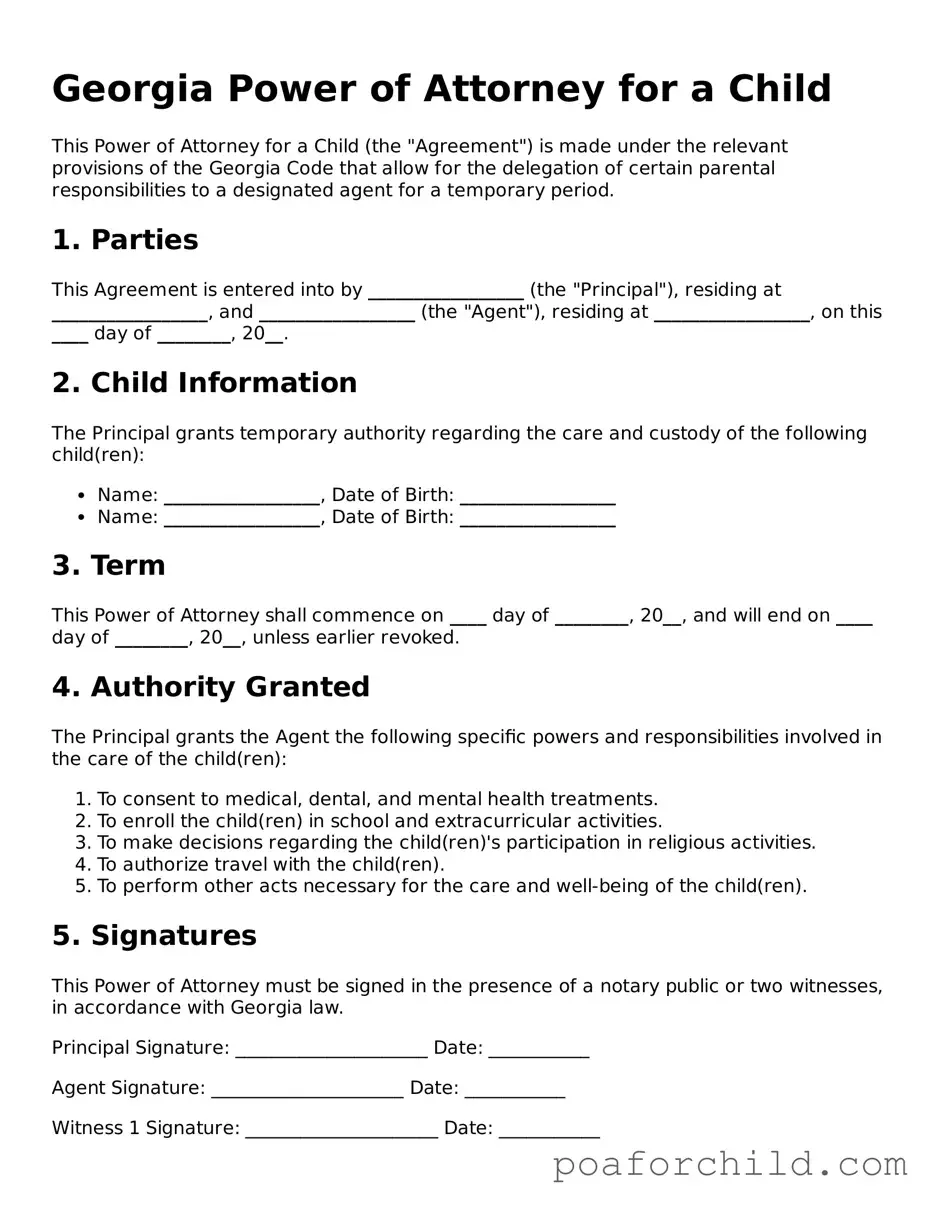Detailed Guide for Using Georgia Power of Attorney for a Child
When preparing to fill out the Georgia Power of Attorney for a Child form, it's crucial to be thorough and attentive. This legal document will grant someone else the authority to make decisions on behalf of your child, covering areas such as education, health care, and general welfare. This process demands precision to ensure that your child's interests are safeguarded and that the appointed guardian can act in their best interest effectively.
- Gather all necessary information including the full legal names of the child, the parent(s), and the designated agent (the individual you are granting power of attorney to).
- Read the form carefully to understand every section. Pay special attention to the powers being granted and the duration of those powers.
- Enter the child's full legal name, date of birth, and address in the designated section at the beginning of the form.
- Fill in your full legal name and address as the parent or legal guardian granting the power of attorney.
- Provide the full legal name and address of the person you are appointing as your agent.
- Specify the powers you are granting to the agent. These can range from enrolling the child in school, making medical decisions, to providing for the child's daily care. Be as precise as possible.
- Determine the duration of the power of attorney. Georgia law typically allows for a power of attorney for a child to last for one year, unless a different duration is specified.
- If you wish, include any specific limitations to the agent's powers or any additional powers not explicitly listed in the form.
- Review the form with the designated agent to ensure they understand their responsibilities and are willing to accept them.
- Sign the form in front of a notary public. Both you and the designated agent must be present for the notarization. Ensure the notary also signs and seals the document, making it legally binding.
- Provide a copy of the completed and notarized form to the appointed agent. It's also wise to keep a copy for your records and consider providing one to your child's school or healthcare provider if applicable.
After completing these steps, the designated agent will have the legal authority to make decisions in the best interest of your child, as outlined in the document. It's recommended to periodically review the arrangement and make any necessary adjustments. This ensures that the power of attorney remains aligned with your child's needs and circumstances.
